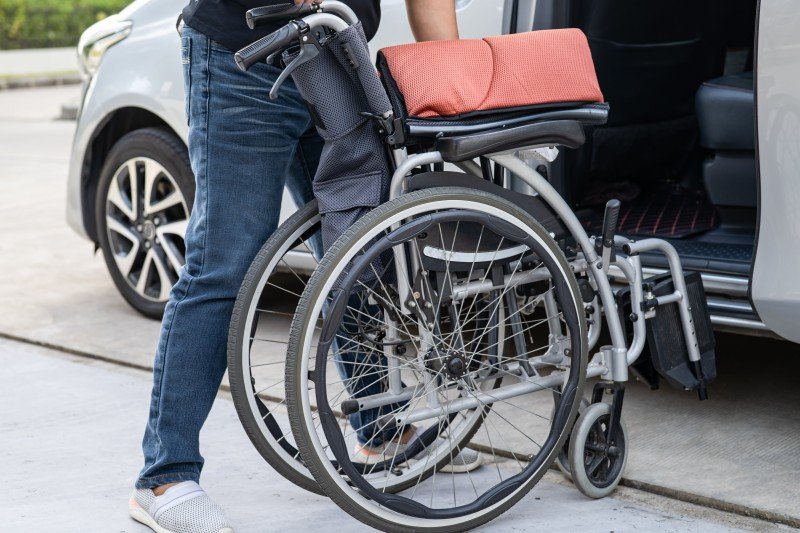scooter_mobility_for_sale5702
About scooter_mobility_for_sale5702
The Next Big Event In The Mobility Scooters Industry
Mobility Scooters for Sale: A Comprehensive Guide
For individuals with mobility issues, the shift to a mobility scooter can considerably boost their quality of life, providing independence, comfort, and a sense of normalcy. This extensive guide delves into the world of mobility scooters, providing insights into the different types readily available, essential functions to consider, and where to discover the best deals. Whether you are a first-time purchaser or aiming to upgrade, this post will help you make a notified decision.
Comprehending Mobility Scooters
Mobility scooters are motorized vehicles created to help individuals who have trouble walking due to different health conditions, such as arthritis, numerous sclerosis, or general mobility disabilities. These scooters are geared up with a comfy seat, a steering mechanism, and an electric motor, allowing users to take a trip short to moderate ranges with ease. They are particularly useful for browsing both indoor and outside environments, such as grocery stores, parks, and public spaces.
Kinds Of Mobility Scooters
-
Three-Wheel Scooters
- Pros: More maneuverable, lighter, and easier to save.
- Cons: Less steady on rough terrain.
- Best For: Indoor use, tight spaces, and users who prioritize dexterity.
-
Four-Wheel Scooters
- Pros: More stable, much better for outside usage, and capable of managing rough surface.
- Cons: Heavier and less maneuverable.
- Best For: Outdoor use, irregular surface areas, and users who focus on stability.
-
Travel Scooters
- Pros: Portable and easy to disassemble for transport.
- Cons: May have limited variety and speed.
- Best For: Users who travel often or live in houses.
-
Heavy Duty Scooters
- Pros: Built to support higher weight capacities and more robust use.
- Cons: Larger and heavier, making them less portable.
- Best For: Users with greater body weights or those who need a more resilient choice.
-
Standing Scooters
- Pros: Provide an option to sitting, which can be beneficial for those who experience pain from extended sitting.
- Cons: May not be ideal for fars away or extended use.
- Best For: Users who prefer standing however still need support.
Key Features to Consider
When shopping for a mobility scooter, numerous features ought to be thought about to ensure it satisfies your specific requirements:
-
Battery Life and Range
- Variety: How far the scooter can take a trip on a single charge.
- Battery Type: Lithium-ion batteries are usually more efficient and longer-lasting than lead-acid batteries.
-
Speed
- Indoor Speed: Typically lower, around 4-6 mph.
- Outside Speed: Can be higher, up to 10-15 miles per hour, depending on the design.
-
Weight Capacity
- Standard: 250-300 pounds.
- Sturdy: 400-500 pounds or more.
-
Turning Radius
- Essential for: Navigating tight spaces and corners.
- Three-Wheel Scooters: Generally have a smaller turning radius.
-
Seating and Comfort
- Adjustable Seat: Ensure the seat is comfy and can be adapted to your height and weight.
- Cushioning: Look for scooters with padded seats and backrests for added comfort.
-
Portability
- Travel Scooters: Designed to be taken apart for easy transport.
- Light-weight Models: Easier to move and store.
-
Safety Features
- Brakes: Ensure the scooter has reputable braking systems.
- Lights and Reflectors: Important for exposure, especially in low-light conditions.
- Horn: Useful for signaling others when essential.
-
Controls
- Alleviate of Use: Look for instinctive controls that are simple to run.
- Adjustable Handlebars: Ensure a comfortable grip and reach.
-
Storage and Accessories
- Baskets or Compartments: Useful for carrying groceries or personal products.
- Cup Holders: Convenient for keeping drinks within reach.
Where to Buy Mobility Scooters
-
Online Retailers
- Amazon: Offers a vast array of mobility scooters from different brands.
- Ebay: Known for competitive prices and a variety of utilized and new scooters.
- Wayfair: Provides a choice of mobility scooters in addition to home health and mobility help.
-
Specialized Mobility Stores
- Local Mobility Dealers: Often provide tailored service, financing choices, and service warranty assistance.
- National Chains: Such as The Mobility Store and Pulse Mobility, which have a wide variety of product or services.
-
Medical Supply Stores
- In-Store and Online: Many medical supply stores offer mobility scooters and associated accessories.
- Insurance Coverage: Some stores can help you browse insurance coverage alternatives to cover part of the cost.
-
Community Resources
- Local Disability Services: May know on leasing programs or discounts.
- Senior Centers: Sometimes offer mobility scooters for sale or rental.
Frequently asked questions
Q: Are mobility scooters covered by insurance coverage?A: Some insurance coverage strategies, including Medicare, might cover the expense of a mobility scooter under particular conditions. It’s important to consult your insurance supplier to understand what is covered and any required paperwork.
Q: How do I keep my mobility scooter?A: Regular upkeep is important to keep your scooter running smoothly. This consists of:
- Charging the Battery: Follow the manufacturer’s guidelines for charging.
- Examining Tires: Ensure tires are correctly pumped up and in good condition.
- Oiling Moving Parts: Periodically oil the chain and other moving parts.
- Cleaning up: Keep the scooter tidy and dry to avoid rust and wear.
Q: What are the legal requirements for using a mobility scooter?A: Legal requirements differ by area. Generally, mobility scooters are categorized as mobility help and do not need a license to run. Nevertheless, it’s crucial to:
- Check Local Regulations: Some areas might have specific rules regarding where and how mobility scooters can be used.
- Register the Scooter: In some regions, registration may be needed, particularly if the scooter is utilized on public roads.
Q: How do I select the ideal mobility scooter for my needs?A: Consider the following:
- Intended Use: Will you be utilizing the scooter primarily inside, outdoors, or both?
- Weight and Height: Ensure the scooter can support your weight and is adjustable to your height.
- Mobility Level: Choose a scooter that matches your level of mobility and any physical limitations.
- Budget plan: Determine just how much you want to spend and search for models that provide the best value.
Q: Are there any safety pointers for utilizing a mobility scooter?A: Yes, here are some security pointers:

- Wear a Helmet: Especially if you are using the scooter on public roads.
- Usage Reflective Gear: Increase exposure during low-light conditions.
- Follow Traffic Rules: Obey traffic signals and signs, and use designated courses when offered.
- Routine Check-ups: Have your scooter examined and kept by an expert frequently.
Picking the ideal mobility scooter can be a life-altering decision, using the freedom and independence to navigate the world with ease. By understanding the different kinds of scooters, key features, and where to buy Mobility scooters (120.201.125.140), you can make an educated option that best matches your needs. Whether you are browsing the aisles of your local supermarket or enjoying a picturesque park, a mobility scooter can boost your every day life and supply the assistance you need.
Extra Resources
- Consumer Reports: Offers detailed evaluations and contrasts of various mobility scooters.
- National Mobility Equipment Dealers Association (NMEDA): Provides resources and information on mobility devices and dealers.
- Disability Rights Organizations: Can use assistance and support for people with mobility concerns.
By putting in the time to research and consider all your options, you can find the perfect mobility scooter to assist you live your best life.

No listing found.
